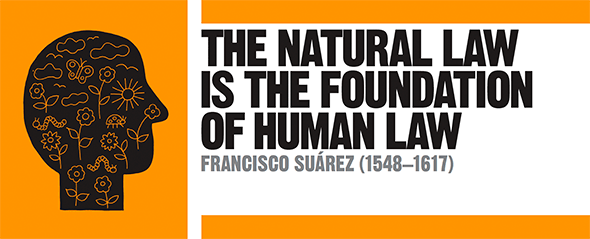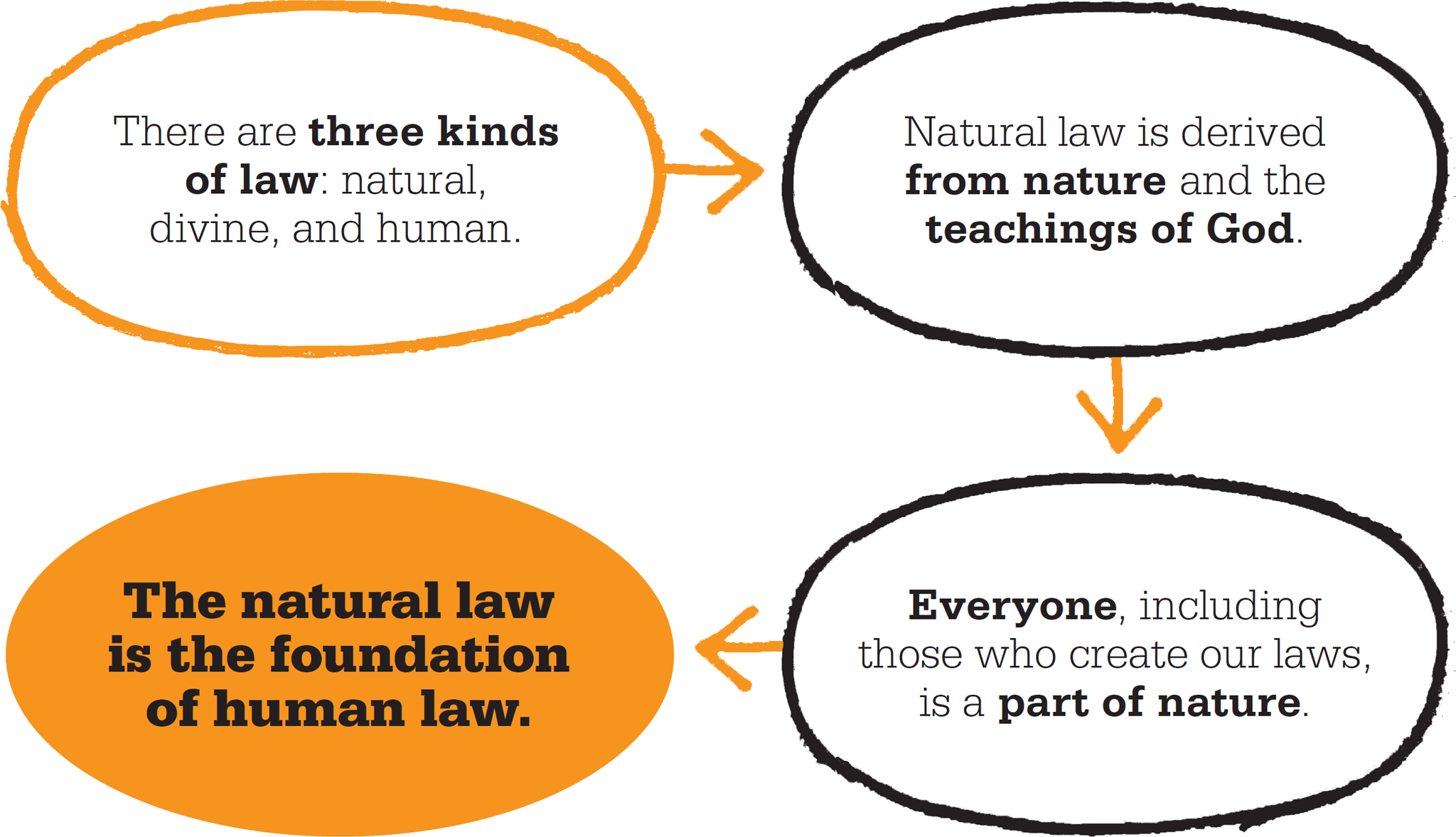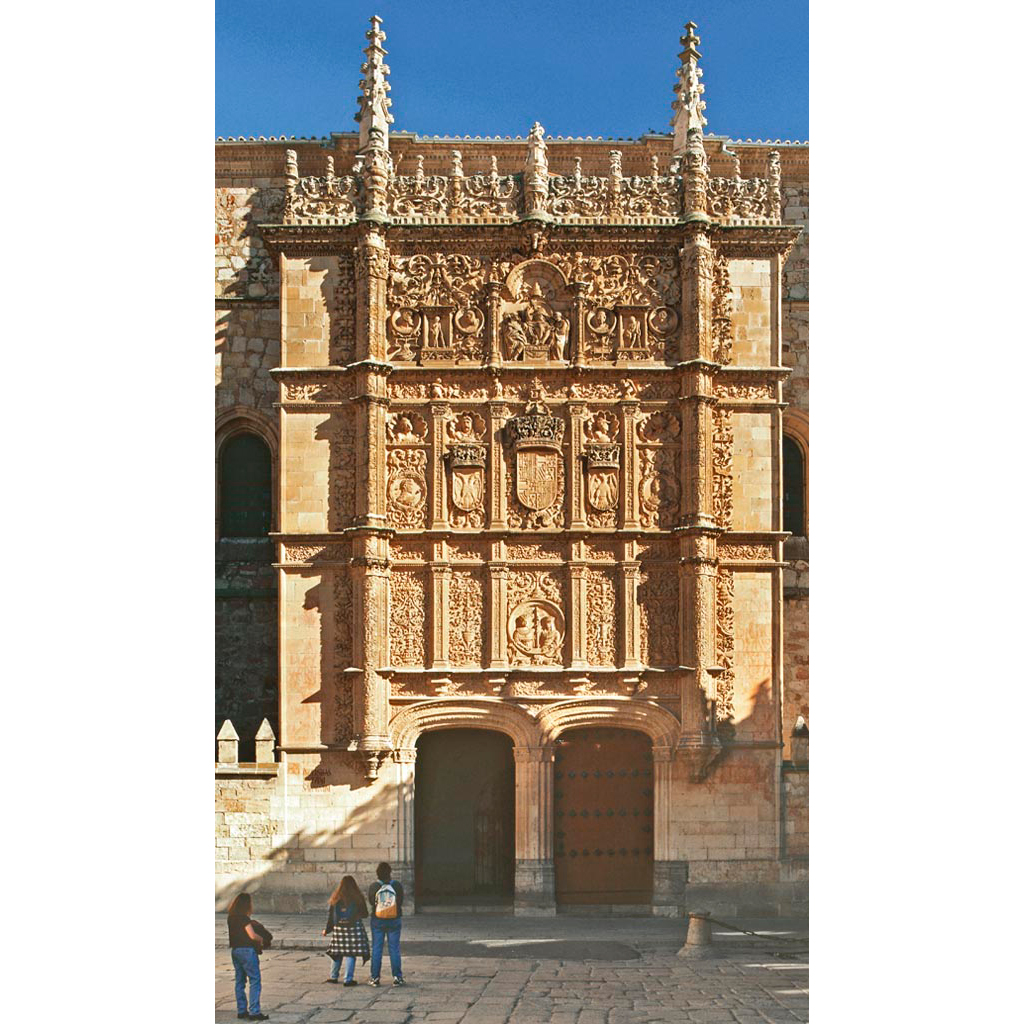
IN CONTEXT
Philosophy of law
Natural and human law
1274 Thomas Aquinas distinguishes between natural law and human law in his Summa Theologica.
1517 The Protestant Reformation questions the doctrines of the Catholic Church, and is used to justify the divine right of kings.
1613 King James I of England bans Suárez’s treatise against Anglicanism, since it criticizes the divine right of kings.
1625 Hugo Grotius writes the first systematic treatise on international law.
1787 The Constitution of the United States refers to natural law as the basis for positive law.
In 16th-century Europe, events such as the Protestant Reformation, the discovery of the Americas, and the rise of humanism made the question of whether laws were derived from nature, God, or fellow human beings particularly topical. Thomas Aquinas had linked natural law with divine law, saying that human laws should be judged by their conformity to natural law, which in turn should be understood in the context of divine law. Natural law refers to universal rules of morality that can be derived by analyzing nature—including humans, as part of nature—while human law (also called positive law) refers to the man-made laws of a particular society.

Breaking human laws
Spanish philosopher Francisco Suárez continued in Aquinas’s tradition, arguing that natural law is the foundation of human law. He described how human laws could be unjust, and placed a greater emphasis on individual liberty and freedom. Man-made laws could, in the view of Suárez, be broken in certain cases. For example, power and authority can be conferred on a ruler by the people, but can also be taken away from the ruler if their laws are unjust. No man-made laws should override people’s natural rights to life and liberty. And since the origin of the state’s authority and power is human, it should be secondary to sacred authority.
"There is no doubt that God is the sufficient cause and, as it were, the teacher of the natural law. But it does not follow from this that He is the lawgiver."
Francisco Suárez

The University of Salamanca was home to the School of Salamanca, a group of theologians that included Suárez, who sought to connect the ideas of Aquinas with a changing world.
A divine right?
Suárez’s ideas were controversial, since monarchs across northern Europe claimed divine and absolute authority—the so-called “divine right” of kings. Suárez’s conclusions challenged the notion that the ruler was accountable only to God, and not to the Church or to his or her subjects. By distinguishing between different sources of laws—natural, divine, and human—Suárez rejected the mixing of the secular and the sacred, and separated the realms of power. He also introduced the notion of the social contract, proposing that the ruler governs by the consent of the people, who can also legitimately withdraw their consent if the ruler does not respect the demands of natural law.
International law
Suárez made a distinction between international law and natural law, seeing the former as primarily based on custom and positive law rather than universal rules. Today, the distinction between natural law and positive law remains, both in national jurisdictions and international law. The Declaration of Independence and the Constitution refer to natural law, while English common law has been greatly influenced by natural law theories.
FRANCISCO SUÁREZ

Suárez was born in the south of Spain and became a Jesuit student in Salamanca at the age of 16. As a theologian and philosopher, he wrote in the same scholastic tradition as Thomas Aquinas, and had considerable influence on the development of international law and the theory of just war. His most influential work was his 1597 Metaphysical Disputations, but he was a productive scholar who wrote many other significant treatises on the relationship between natural law, the state and Church, and theology. Suárez was a dedicated Jesuit—hardworking, disciplined, humble, and pious. He was regarded by contemporaries as one of the greatest living philosophers. Pope Paul V called him Doctor Eximius et Pius, an honorary title, and Pope Gregory XIII is said to have attended his first lecture in Rome.
Key works
1597 Metaphysical Disputations
1612 On Laws
1613 Defense of the Catholic and Apostolic Faith against the Errors of Anglicanism
See also: Thomas Aquinas • Francisco de Vitoria • Hugo Grotius • John Locke
